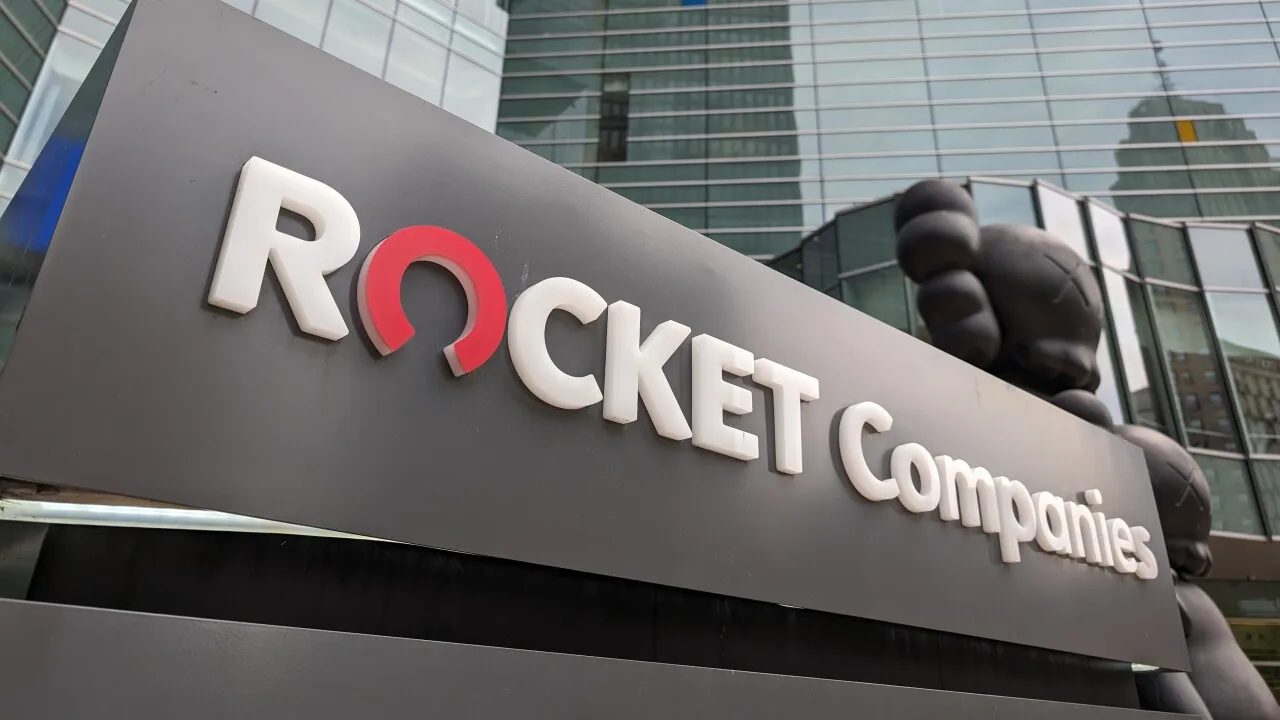High Supply Markets Lead to Deeper Rent Cuts
This inverse relationship between apartment inventory growth and rent growth was evident nationwide.
Good morning. Markets flush with new apartments saw notable rent drops in 2023. Meanwhile, distressed commercial real estate loans in CLOs soared by 480% to 8.6% in January, a sharp year-over-year rise.
Today’s issue is brought to you by Viking Capital.
⭐️ Referring CRE Daily to your friends and colleagues is now more rewarding than ever. Check out our new referral program below.
Market Snapshot
|
|
||||
|
|
*Data as of 2/23/2024 market close.
APARTMENT SUPLLY
High Supply Markets Lead to Deeper Rent Cuts

In 2023, a striking inverse relationship was observed between apartment rent growth and inventory growth, according to new data from RealPage.
High supply, more discounts: Markets with significant new inventory saw more substantial rent reductions. Among the top 50 U.S. apartment markets, 17 exceeded the national average inventory growth of 2.8%. Notably, Salt Lake City and Nashville experienced over 7% inventory growth. These high supply markets averaged a 2.2% decrease in effective asking rents, contrasting with the marginal national growth.

Low supply means more rent increases. Conversely, 20 of the largest markets had inventory growth below 2.8% and rent increases above 0.2%. These markets, primarily in the Midwest, experienced rent growth upwards of 3%. Slow-and-steady markets, including Boston and Philadelphia, also saw increases. The Sun Belt region, typically known for high inventory growth, had few representatives in this category.

Zoom in: A smaller group of markets, mainly in the West, had lower-than-average inventory growth but still faced rent cuts. This was due to challenges in maintaining demand, particularly in markets recovering from pandemic impacts. Only three major markets – Columbus, Minneapolis, and Denver – balanced high inventory growth with rent increases, staying close to the national average in inventory growth.
➥ THE TAKEAWAY
Why it matters: 2023 clearly showcased the fundamental economic principle within the real estate market: a direct inverse correlation between the construction of new apartment units and rent growth. The surge in building, with an impressive 440,000 new units introduced nationwide, exerted considerable downward pressure on rents. This phenomenon highlights the balance between supply and the ability of market operators to command higher prices.
SPONSORED BY VIKING CAPITAL
Discover Viking Capital’s HYRO Fund
Viking Capital’s High-Yield Resilience Opportunity Fund (HYRO) focuses on achieving up to 17% Internal Rate of Return (IRR) in low-risk preferred equity investments.
The fund supports operators seeking $1-$5 million for high-performing multifamily assets, minimizing their need for capital calls. This means you can invest with confidence, knowing your returns are secure and not dependent on market fluctuations or property performance.
Explore the path to top-tier capital stack diversification by clicking here.
Please support our sponsors. It helps keep CRE Daily free.
✍️ Editor’s Picks
-
Holding firm: Fannie Mae rejects loans from Riverside Abstract and Madison Title after their involvement in fraudulent real estate closings linked to Boruch Drillman.
-
7-Day Multifamily: When looking to learn the fundamentals of multifamily investing, investors realize the only options are expensive coaching programs, consulting calls, or conferences. Learn to invest in multifamily real estate for a fraction of the price with this course. (sponsored)
-
Missed payment: Avison Young defaulted on a $325 million senior term loan, missing principal and interest payments for two quarters, as reported by S&P Global.
-
Spending spree: Host Hotels & Resorts, with nearly $3 billion in cash, bets on tourism rebound in cities like San Francisco, leveraging its strong January revenue at the San Francisco Marriott Marquis.
-
Debt deal: Maverick Real Estate Partners acquires $247 million in distressed debt from a Blackstone venture, backed by properties in Manhattan, Brooklyn, and Queens.
-
Bank failures: Fortress Investment Group’s co-CEO predicts more U.S. bank failures due to the impending commercial real estate market crash impacting lenders’ balance sheets.
🏘️ MULTIFAMILY
-
Housing strategy: Another developer in Palo Alto leveraged California’s “builder’s remedy” for a new housing project as the city struggles to meet state-approved housing goals.
-
Outside the box: Atlanta Mayor Andre Dickens launches the Rapid Housing Initiative, converting shipping containers into affordable multifamily homes, with the first 40-unit complex, The Melody, now open downtown.
-
Historic sale: Chateau de Ville, a 254-unit multifamily property in Anaheim, sells for $79 million to a local investment firm, marking its first sale in 50 years at approximately $311,000 per unit.
-
Lawsuit: Housing Rights Initiative sues Boston-area landlords and brokers for allegedly discriminating against low-income tenants with housing vouchers, seeking policy changes and damages.
-
Expansion: Prado Group plans to add 230 senior homes to its redevelopment of the former California Pacific Medical Center in SF, including independent living and memory care units.
🏭 Industrial
-
Raising cash: W.P. Carey sold 78 storage facilities to U-Haul affiliates for $465 million, ending a 20-year lease arrangement across 69 cities in 24 states.
-
The show must go on: Top filmmakers, including Spielberg and Nolan, unite to purchase and preserve the historic Fox Village Theatre in Westwood for $15.5 million.
-
Leasing: Hines secures 175,000 square feet in new and renewed R&D and manufacturing leases at its Santa Clara business campus, including two new office leases and a renewal.
🏬 RETAIL
-
Open for biz: 2023 saw a 20.3% increase in business openings on Yelp, reaching a record high in the U.S. compared to 2022.
-
Shopping center: Whitestone REIT acquired a Houston-area shopping center anchored by an Aldi grocery store, expanding its real estate portfolio with limited supply on the market.
-
New highs: The retail real estate market demonstrates significant resilience and growth, paralleling the robust retail sales environment post-pandemic.
🏢 OFFICE
-
Moving on: Allstate plans to sell a downtown Chicago office building it bought but never occupied amid declining property values and changing work trends.
-
Shifting strategy: Veris Residential, formerly Mack-Cali Realty and a major New Jersey office landlord, sells its last office property to focus solely on apartments.
-
New horizons: Paul Darrah, newly appointed as Citadel’s chief workplace officer, is already envisioning the future of work for the hedge fund and broader office users.
-
Offers pouring in: Investors eye Uptown Tower, a distressed 12-story office building in Dallas, with three offers on the table after foreclosure and bankruptcy following a $14 million loan default.
RUNNING OUT OF TIME
Distress in Commercial Real Estate CLO Loans Skyrocketed 480% YoY in January
A staggering 8.6% of commercial real estate loans in collateralized loan obligations (CLOs) were classified as distressed in January, marking a 480% increase from last year, as reported by CRED iQ.
On the rise: The overall distress rate for CRE CLOs skyrocketed from 1.4% to 7.4% in 2023, eventually reaching 8.6% in January 2024. This rate encompasses loans that are 30 days delinquent or in the hands of special servicers. The distress rate has seen an over 440% increase in just 12 months, with the total distressed CRE CLO loans surging from $1.3B in February 2023 to a staggering $6.8B by January 2024.

Zoom in: With an estimated $80 billion in outstanding CRE collateralized loan obligations, these primarily floating-rate loans are generally structured with a three-year lifespan and options for extension based on financial performance. Major issuers in the past five years include MF1, Arbor, LoanCore, Benefit Street Partners, Bridge Investment Group, FS Rialto, and TPG.
In the spotlight: Prominent multifamily lenders like Arbor Realty Trust Inc. are at major risk as they provide the equity portion of the collateralized loan obligations (CLOs). In cases of default, these lenders are the first to incur losses. Arbor’s Chairman, Ivan Kaufman, anticipates the next two quarters to be particularly stressful as they attempt to work with partners to manage and take over underperforming assets, hoping to stabilize their debt instability.
➥ THE TAKEAWAY
Why it matters: The rise in borrowing costs has been a key factor, especially for the once-booming multifamily market. Borrowers in multifamily properties that originated around 2021 with plans to renovate and sell for profit now face challenges due to escalating interest rates on their floating-rate loans. Further, multifamily debtors are grappling with increased insurance costs, dropping property values, and heightened competition.
📈 CHART OF THE DAY
Florida saw a 5% population increase from April 2020 to July 2023, driven by changing work patterns and the appeal of improved quality of life despite affordability challenges.
SHARE CRE DAILY & EARN REWARDS

You currently have 0 referrals, only 1 away from receiving B.O.T.N Multifamily Deal Screener .
What did you think of today’s newsletter? |



















